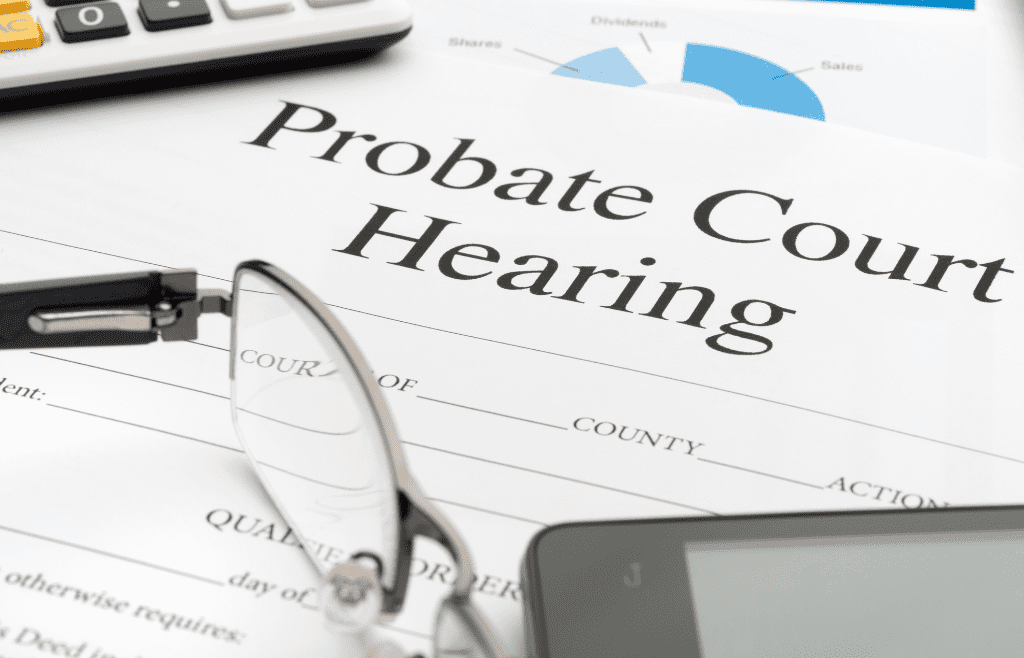You want your loved ones to be cared for after you pass away. However, many people don’t realize that beneficiaries must often deal with a lengthy legal hassle known as probate. Fortunately, estate planning can help ensure that your heirs avoid probate.
All states—including Washington—have a legal process used to close residents’ estates after they pass away. This legal process is probate. In Washington, the probate process can be long and arduous, often taking 6-12 months or longer. Typically, attorneys are needed to navigate the process, which can be costly. At Harbor Law Firm, we help you create a plan so your loved ones can avoid probate court.
What is probate?
Probate is the legal process of transferring titles and assets out of the name of someone who passed away and into the name of their beneficiaries. That is officially known as death probate. There is also living probate, which occurs when someone becomes medically incapacitated. Because probate is a public process, when someone’s assets enter probate, they become part of the public record.
After someone passes away, the first step in the probate process is to name the person responsible for ensuring the estate’s assets go to the right places, known as a personal representative or an executor. Often, a deceased’s Last Will and Testament names the personal representative. However, many families also need an attorney to help navigate the complexities of the probate process.
The personal representative must submit a Will in Superior Court within 40 days of the decedent’s death. Once the Will is filed, a four-month countdown begins. During these four months, certain people may challenge the Will’s validity. The personal representative is also responsible for publishing a “Probate Notice to Creditors” in the local newspaper, which allows creditors to bring claims against the estate within that four-month window. If the personal representative does not post a notice, creditors typically have two years to bring claims.
Gathering assets
Once the personal representative receives authorization from the Superior Court, they begin gathering probate assets. This includes real property and assets held solely in the decedent’s name. Some assets, including those held in a living trust or owned jointly with a surviving spouse, will probably not have to pass through probate (see below).
After gathering probate assets, the personal representative must determine whether the estate is solvent (meaning it has more assets than debts). Funeral expenses, debts, estate tax, and other final taxes must be paid from the estate. Once the estate has no more financial obligations, the remaining assets (if there are any) may pass to beneficiaries under the Will or through the Washington intestacy law (someone who passes away without a will is considered to have died intestate).
How do you avoid probate?
The good news is that Washington state has a few ways to avoid probate.
To begin, not all estates in Washington must go through probate. Estates worth less than $100,000 usually do not need to be probated. However, anyone concerned about avoiding probate likely has an estate valued above $100,000, which brings us to the best way to avoid probate: estate planning.
For estates valued over $100,000, probate avoidance is accomplished by planning for each asset, such as your home and your retirement and investment accounts. Through estate planning, one of the most effective ways to avoid probate court is to create a revocable living trust.
How to avoid probate court with revocable living trusts
A revocable living trust transfers property and assets to beneficiaries while avoiding probate. Here is how a revocable living trust works.
There are three terms to know regarding trusts:
- The grantor (or trustor) is the person creating a trust.
- The trustee is the person who administers the trust once the grantor passes away or if the grantor becomes incapacitated.
- A beneficiary is a person or institution that gains the assets held by the trust.
A revocable living trust is created when a grantor transfers their assets—real estate, vehicles, bank accounts, investments, family heirlooms, and other property—into the trust. Now, the trust becomes the legal owner of those possessions. The grantor is no longer the legal owner. However, in practical terms, little else changes. The grantor still has the rights to those assets and can withdraw money and sell the possessions, except those transactions occur in the name of the trust. The grantor is also free to terminate the revocable living trust at any time and take the assets back.
The grantor also establishes a trustee to administer the trust once the grantor passes away or if the grantor becomes incapacitated. Once the grantor passes away, the trustee manages the assets and makes distributions to beneficiaries according to the terms of the trust.
The advantages of avoiding probate with a revocable living trust include the following:
- Beneficiaries may receive and benefit from the assets much sooner than they would through the probate process.
- Maintaining privacy because the details of a trust are private, whereas when a will is in probate, it becomes part of the public record.
- The administration of an estate in probate can be costly compared to a trust.
- If you own out-of-state property, a revocable living trust ensures your heirs avoid the hassles of ancillary probate.
- If the grantor becomes incapacitated, the successor trustee can immediately step in, help with finances and home upkeep, and ensure loved ones are cared for promptly, avoiding living probate.
However, the main benefit of avoiding probate with a revocable living trust is that it saves your heirs time and money.
How do you avoid probate on a home?
In addition to a revocable living trust, Washington state offers other methods to avoid probate on a home. However, they generally do not have the flexibility of a revocable living trust. Always seek professional advice before using the following techniques to avoid unintended consequences.
Joint ownership
Joint ownership is when two (or more) people own—and have an equal share of—real estate, vehicles, bank accounts, or other valuable property. Joint ownership almost always includes a “right of survivorship,” which means that once an owner passes away, the surviving owner or owners automatically assume the deceased’s share of the property avoiding probate court.
Tenancy in common
Tenancy in common is another form of co-ownership where shares of the property do not need to be equal (for example, if a group of friends purchases a vacation property together). Tenancy in common does not automatically include the “right of survivorship.” In fact, when someone who is a tenant in common passes away, their share of the property becomes part of their estate and passes to their heirs. If tenants in common want the “right of survivorship,” they need to specify it when signing the contract.
Community property agreements
When a couple signs a community property agreement, when one partner dies, that person’s property becomes community property and passes to the other. Community property can include real estate, wages, pensions, stock options, investments, and insurance. Unmarried couples or those not in legal domestic partnerships cannot possess community property.
However, the downside to community property is that the agreement supersedes other estate planning documents. So, if you wish to have multiple beneficiaries, a community property agreement is likely unnecessary.
Beneficiary deed
A beneficiary deed, also known as a transfer-on-death deed, does not take effect until the creator of the deed passes away. Upon that person’s death, the deed becomes irrevocable and transfers property to the named beneficiary. However, while the creator of the deed is alive, they can revoke the beneficiary deed or sell the property, which nullifies the deed.
How to avoid probate on bank accounts
The most common way to transfer a bank account, life insurance policy, or retirement account is by naming a beneficiary. Accounts with named beneficiaries do not need to go through probate.
How to avoid probate
Harbor Law Firm is very familiar with the probate process, which is why we almost always recommend that our clients try to avoid probate altogether. Our experienced team regularly implements several strategies to help Washingtonians avoid the unnecessary time and cost of probate. The more effective your estate plan, the more of your hard-earned success you can pass on to your heirs.
Our firm makes your 2023 (and beyond) estate planning process as simple and stress-free as possible. Our services include the following:
- Knowledgeable guidance customized to your specific circumstances and goals.
- A fully remote process that never requires you to leave home.
- Hours to fit your schedule.
- An adaptable process for exchanging documents and collaborating.
- Flat-rate pricing, so you’ll never be surprised by a legal bill.
We also offer complimentary consultations and can speak with you outside regular business hours. For more on our remote estate planning process, visit this page.
Our proven process defines precisely what you can expect, and our focus is always on your goals.

